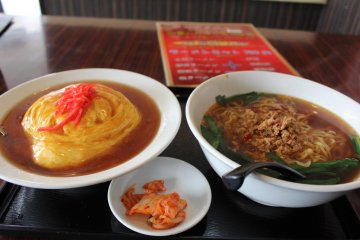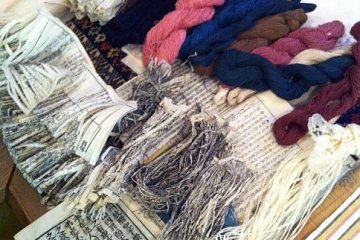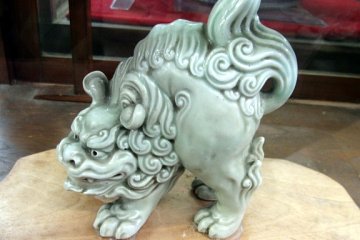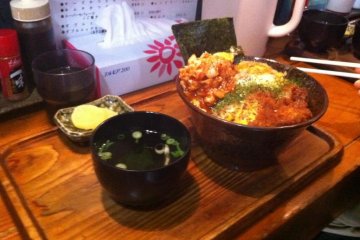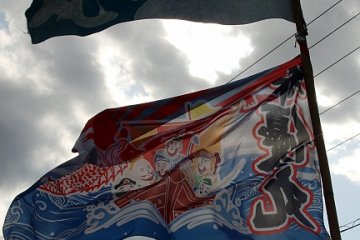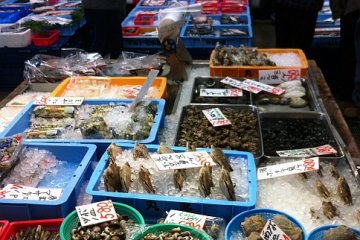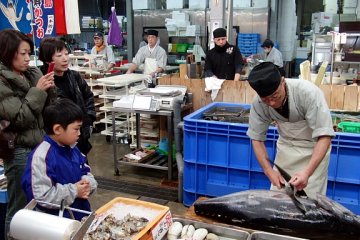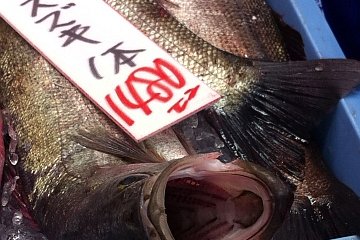When I asked a certain acquaintance in Saijo where I should eat, he told me that when his relatives come to visit, he always takes them to Marutomo by the fishing port. That was a good enough recommendation for me, so I walked about twenty minutes from Iyo-Saijo station to the port.
Besides the Honjin River close to where it enters the Seto Inland Sea stood a row of colorful flags on bamboo poles of the type that fishermen use to decorate their boats when returning with a big catch. It was quite obvious that this was Marutomo Suisan, the marine products shop and restaurant.
As I approached, I could hear the minyo, folk music that’s typically heard at festivals. It was emanating from a speaker somewhere, not at an obnoxious volume, but enough to set a definitely festive tone. Along with the music came the delicious smell of soy-marinated grilled eel, carried on a brisk autumn wind from off the sea. In front of the store, a couple in traditional fisher folk aprons were grilling eel and squid next to racks of split fish drying in the sun.
Inside there were more of the same flags, covering nearly every available surface. Their colors competed with the bright reds, pinks and every other conceivable color of the enormous variety of seafood on display. I saw varieties of shellfish and live crabs that I’ve never seen before. A large yellowtail lay like a torpedo on a wooden board. Shortly, one of the staff got on a mike to announce the filleting of the yellowtail, with much fairground patter. A crowd soon formed to watch the expert wield his large knives, removing first the fins, then the head, and finally cutting off the flanks to leave a nearly pristine skeleton. The crowd was invited to play scissors-paper-stone to win the fins with the rich red meat still attached to the base.
At one end of Marutomo is a restaurant serving a range of cooked and raw fish. Guests order first and then wait about twenty minutes for a table. There were a good few people waiting, and the food looked great when it arrived. You can also buy any of the items to eat at the tables outside. I got some tai meshi, sea bream cooked with rice, and a big piece of yellow tail teriyaki, both of which were very good. This isn’t high-class dining—but eating fresh fish in the port with a festival atmosphere is something that really has to be tried when you’re in Japan.



